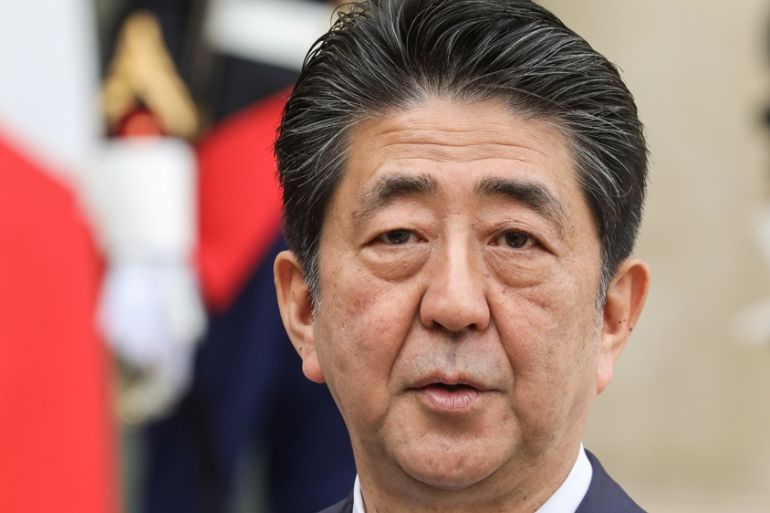Japan’s Abe apologises to victims of forced sterilisation
Government also promises to compensate tens of thousands of people sterilised to prevent ‘poor-quality descendants’.

Japan‘s government has apologised and promised to pay compensation to tens of thousands of victims forcibly sterilised under a now-defunct Eugenics Protection Law, which was designed to “prevent the birth of poor-quality descendants”.
Many of the victims were physically or cognitively disabled, and others suffered from mental illness, leprosy – now a curable affliction known as Hansen’s disease – or simply had behavioural problems.
Keep reading
list of 4 itemsMasked Tunisian police arrest prominent lawyer for media comments
Gaza’s mass graves: Is the truth being uncovered?
Tunisia: The migration trap
The law, which states that “we seriously reflect and deeply apologise”, promises to pay each victim, many of whom were in their teens or younger when operated upon, 3.2 million yen ($29,000) in compensation.
It was unanimously passed by the upper house of parliament, after previously passing the more powerful lower house.
Prime Minister Shinzo Abe issued a statement apologising and saying every effort would be made to ensure that society did away with discrimination against those with handicaps.
“During the period the law was in effect, many people were subjected to operations that made them unable to have children based on their having a disability or another chronic illness, causing them great suffering,” he said.
“As the government that carried out this law, after deep reflection, I would like to apologise from the bottom of my heart.”
Forced operations
An estimated 25,000 people were sterilised without their consent while the 1948 Eugenics Protection Law remained in place, until 1996. The law allowed doctors to sterilise people with disabilities. It was quietly renamed the Maternity Protection Law in 1996, when the discriminatory condition was removed.
The redress legislation acknowledges that many people were forced to have operations to remove their reproductive organs or undergo radiation treatment to be sterilised, causing them tremendous pain mentally and physically.
|
|
Health, Labor and Welfare Minister Takumi Nemoto said, as head of the department in charge of the compensation, he would do his utmost to provide the one-time payment for entitled recipients, many of them ageing, and physically or mentally disabled, as soon as possible.
The apology and the redress law follow a series of lawsuits by victims who came forward recently after breaking decades of silence, prompting politicians from both ruling and opposition parties to draft the package.
In addition to the forced sterilisations, more than 8,000 other people were sterilised with consent, though likely under pressure, while nearly 60,000 women had abortions because of hereditary illnesses. However, the redress law does not cover those who had to abort their pregnancy, according to the Japan Federation of Bar Associations.
Among them were about 10,000 leprosy patients who had been confined in isolated institutions until 1996, when the leprosy prevention law was also abolished.
The government has already offered compensation and an apology to them for its forced isolation policy.